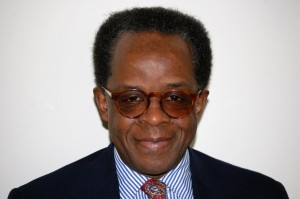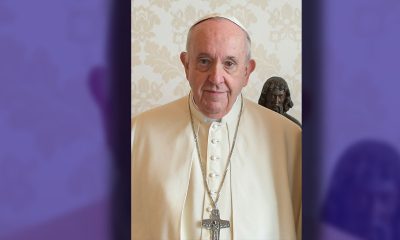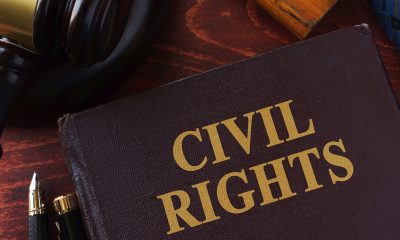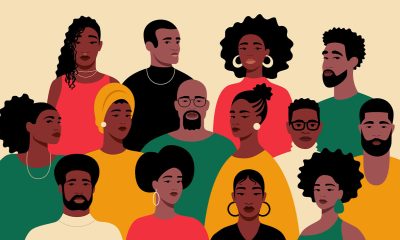Op-Ed
White Racism Costs Whites, Too
By Lee A. Daniels
NNPA Columnist
Although he forged a distinguished career as a 10-term Republican Congressman from the early 1950s to the early 1970s, and later as a judge on his state’s Supreme Court, Richard H. Poff is but a minor footnote in American history.
Coming across his name, many people would likely note his achievements with a mental salute, and then quickly move on.
Unless they happened to know that in October of 1971, Poff informed President Richard M. Nixon that he did not wish to be nominated for a seat on the Supreme Court of the United States.
I wrote about why Richard H. Poff turned down the nomination many Washington insiders of the day expected to come his way – and fulfill his lifelong ambition – when he died four years ago. His story has stayed with me ever since because it illuminates a reality of American society that’s rarely discussed: the high cost of White racism as experienced from the White side of the Color Line.
I’ve been pondering that point since the murder of the Emanuel A.M.E. Church Nine drew an immediate outpouring of sympathy from many Whites in the South and elsewhere – and provoked the widespread public outrage against the display of the Confederate flag on public property. That interracial call for change has followed the interracial protests of the last two years against the police killings of Black and Hispanic Americans suggests that more and more Whites and other people of color understand the “cost” of White racism affects them, too.
It’s that development, amid the conservative movement’s continual race-mongering, the GOP’s reflexive opposition to every Obama proposal, and especially the sordid anti-Latino demagoguery of fake-GOP presidential candidate Donald Trump, that makes what Richard H. Poff did in 1971 and what he said about it worth considering.
Poff, a Republican who represented a district in western Virginia, had been a Congressional rarity — a Republican from a state of the Old Confederacy – when first elected in 1952. The decorated World War II bomber pilot had ridden the political coattails of Dwight D. Eisenhower’s landslide election to the presidency into office, and over time compiled a solid record as a moderate Republican conservative.
But, like nearly every other Southern Senator and Representative of the time, during the 1950s and 1960s, Poff had marched in lockstep with the White South’s campaign of “massive resistance” to the Civil Rights Movement. He wasn’t one of the demagogues who delighted in disparaging Black Americans and denouncing civil rights legislation. He just went quietly along with those who did. In 1971, six years after the Voting Rights Act of 1965 had changed the South’s and the nation’s political calculus, the civil rights groups (who in 1969 and 1970 had engineered the defeat of two other Nixon Supreme Court nominees from the South) declared the cost to him of that past: their unyielding opposition. Less than a fortnight later, Poff withdrew his name.
A deeply private man, Poff never directly stated why he had done so other than that it was to preserve his family’s privacy. But three months earlier, Poff had given a remarkable interview to a local Virginia newspaper in which he discussed his civil rights record with extraordinary candor.
Among the things he said was this: “I can only say that segregation is wrong today, it was wrong yesterday. Segregation was never right. But it is one of the most lamentable frailties of mankind that when one’s wrong is most grievous, his self-justification is most passionate, perhaps in the pitiful hope that the fervor of his self-defense will somehow prove him right. But this doesn’t make it so. And he doesn’t fool himself.”
One needn’t cry for Richard H. Poff. As already mentioned, the next year he took a seat on the Virginia State Supreme Court and served there with distinction until his retirement in 1988. Further, his personal setback pales into insignificance compared to what the inaction of the White Southern elite cost their fellow Southerners, Black and White, during those years. Nonetheless, if I’m correct in reading his incisive and poignant words as regret for his moral cowardice on the civil rights issues of the day, then let’s consider a what-if:
What if Poff, by all accounts an honorable, thoughtful man, had resisted the demagogues of the day in the 1950s and 1960s—and had been joined by some of the other Congressional Southerners? Would that have made a difference in that era’s fight for democracy in the South and across the country? Would America have seen then a visible cohort of White Southerners standing up against bigotry and for tolerance similar to what has occurred in the last six weeks in some areas of the South?
A final question: Is America still paying the cost of the inaction of too many White people like Richard H. Poff?
Lee A. Daniels is a longtime journalist based in New York City. His essay, “Martin Luther King, Jr.: The Great Provocateur,” appears in Africa’s Peacemakers: Nobel Peace Laureates of African Descent (2014), published by Zed Books. His new collection of columns, Race Forward: Facing America’s Racial Divide in 2014, is available at www.amazon.com.
###
Activism
Oakland Post Endorses Barbara Lee
Barbara Lee will be able to unify the city around Oakland’s critical budget and financial issues, since she will walk into the mayor’s office with the support of a super majority of seven city council members — enabling her to achieve much-needed consensus on moving Oakland into a successful future.
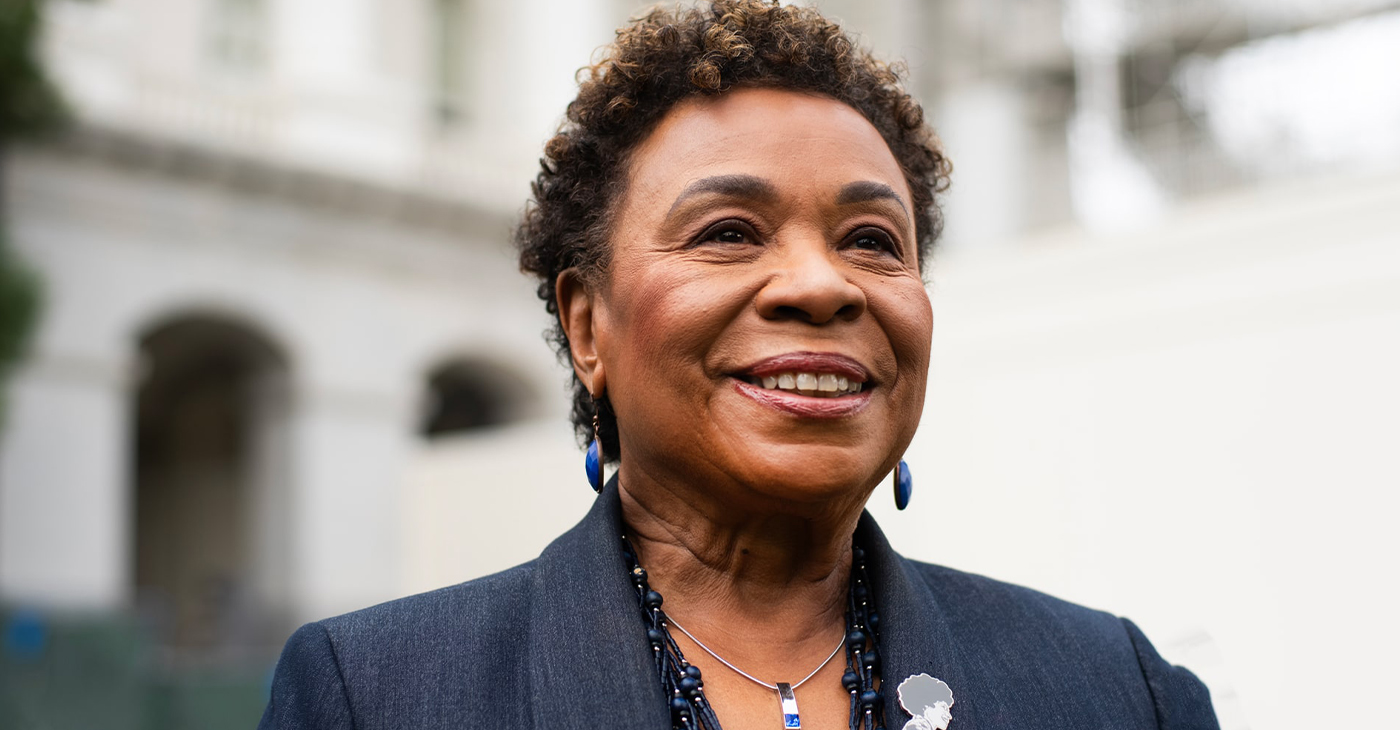
As we end the celebration of Women’s History Month in Oakland, we endorse Barbara Lee, a woman of demonstrated historical significance. In our opinion, she has the best chance of uniting the city and achieving our needs for affordable housing, public safety, and fiscal accountability.
As a former small business owner, Barbara Lee understands how to apply tools needed to revitalize Oakland’s downtown, uptown, and neighborhood businesses.
Barbara Lee will be able to unify the city around Oakland’s critical budget and financial issues, since she will walk into the mayor’s office with the support of a super majority of seven city council members — enabling her to achieve much-needed consensus on moving Oakland into a successful future.
It is notable that many of those who fought politically on both sides of the recent recall election battles have now laid down their weapons and become brothers and sisters in support of Barbara Lee. The Oakland Post is pleased to join them.
Activism
Actor, Philanthropist Blair Underwood Visits Bay Area, Kicks Off Literacy Program in ‘New Oakland’ Initiative
These community activations were coordinated with the San Francisco-based non-profit program “Room to Read.” Ray said he is also donating his time to read and take pictures with students to encourage their engagement and to inspire them to read more. The inspirational book “Clifford Ray Saves the Day” highlights Clifford Ray’s true story of saving a dolphin.
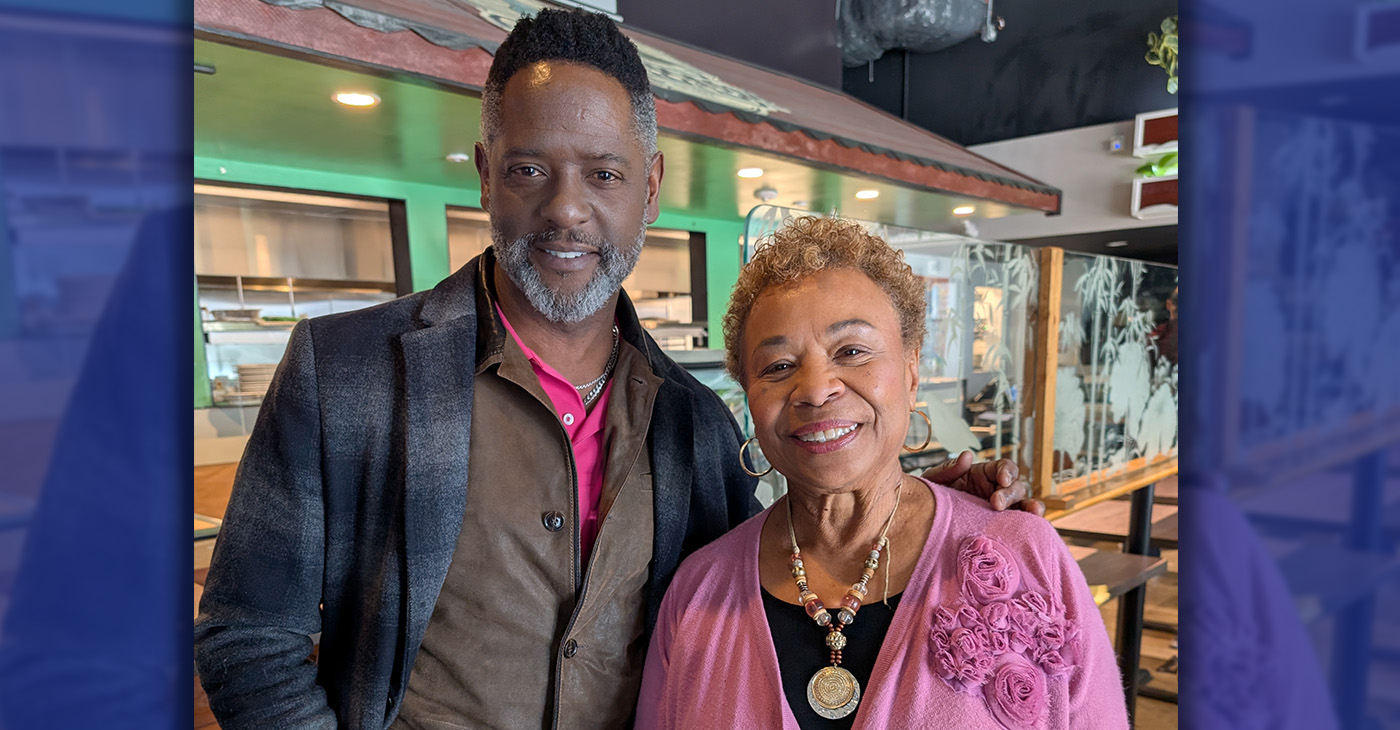
By Paul Cobb
New Oakland Series
Opinion Part 3
The Post mentioned three weeks ago that a number of our local luminaries were coming together to support the “New Oakland” movement. As this current national administration continues to eliminate our “legacy” institutional policies and programs left and right, most communities find themselves beyond “frozen” in fear.
Well, esteemed actor, long-time Bay Area supporter, and philanthropist Blair Underwood returned to Oakland this week to speak with city leaders, community trust agents, students, the Oakland Post, and local celebrities alike to continue his “New Oakland” initiative.
This week, he kicked off his “Guess Who’s Coming to Read” literacy program in some of Oakland’s middle schools. Clifford Ray, who played the center position of the 1975 World Champion Golden State Warriors, donated close to 1,000 books. Ray’s fellow teammate Charles “The Hopper” Dudley also gave Converse sneakers to students.
These community activations were coordinated with the San Francisco-based non-profit program “Room to Read.” Ray said he is also donating his time to read and take pictures with students to encourage their engagement and to inspire them to read more. The inspirational book “Clifford Ray Saves the Day” highlights Clifford Ray’s true story of saving a dolphin.
Underwood also spent quality time with the Oakland Ballers ownership group and visited the amazing Raimondi Park West Oakland community revitalization site. In the 1996 TV film Soul of the Game, Underwood played the role of the legendary first Black Major League Baseball player Jackie Robinson and commended the Ballers owners.
“This group of sports enthusiasts/ philanthropists needs to be applauded for their human capital investment and their financial capital investment,” Underwood said. “Truly putting their money and passion to work,” Underwood said.
Underwood was also inspired by mayoral candidate Barbara Lee’s open-minded invitation to bring public-private partnership opportunities to Oakland.
Underwood said he wants to “reinforce the importance of ‘collaborative activism’ among those most marginalized by non-empathic leadership. We must ‘act out’ our discomfort with passionate intentions to create healthy change.”
Activism
Councilmembers Ramachandran, Kaplan, Unger Identify Funds to Save Oakland Fire Stations
Our budget crisis – one of the worst in Oakland’s history – is compounded by the fact that people do not feel safe coming to Oakland due to our public safety crisis. By investing in our fundamental public safety resources today, we can send a signal to the world that Oakland is open for business. We have such a rich and vibrant culture, arts, and food scene that is worth celebrating – but we can only showcase this if we are able to keep our neighborhoods safe. Having fully functioning fire stations are absolutely essential to these efforts.
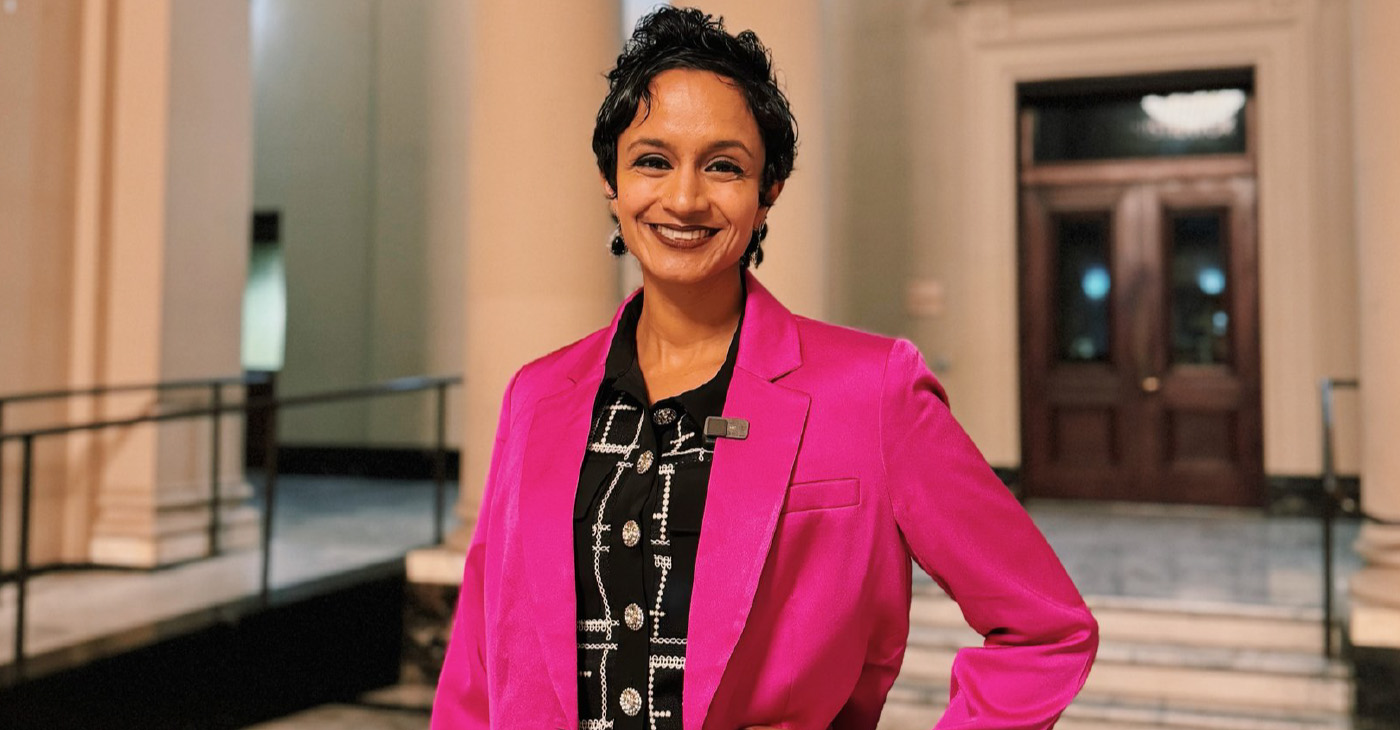
By Janani Ramachandran
There is no greater concern to the people of Oakland today than public safety. Fire stations are the bread and butter of essential city services – and every day that we have stations shuttered, we imperil the lives of our community members. In response to widespread outcry over the current and planned closure of stations, myself, along with Councilmembers Kaplan and Unger, have painstakingly worked to identify millions of dollars of new funding to save our stations. The legislation we introduced on Thursday, February 13th, will amend our budget to prevent the closure of four fire stations that are currently on the chopping block due to our budget crisis and will re-open two closed stations that have already been closed – Station 25 and 28 – in the near future. The resolution that will provide the funding to keep our stations open will go before the full City Council for a vote at our meeting on Tuesday, March 4th at 3:30 PM – and we invite you to join us at City Hall to share your perspective on the topic.
Our budget crisis – one of the worst in Oakland’s history – is compounded by the fact that people do not feel safe coming to Oakland due to our public safety crisis. By investing in our fundamental public safety resources today, we can send a signal to the world that Oakland is open for business. We have such a rich and vibrant culture, arts, and food scene that is worth celebrating – but we can only showcase this if we are able to keep our neighborhoods safe. Having fully functioning fire stations are absolutely essential to these efforts.
With the devastating Los Angeles fire at the top of people’s minds, terrible memories of Oakland’s own wildfires are re-surfacing from the 1991 Oakland Hills Firestorm to the Keller fire just a few months ago – and how essential fire stations are to mitigating these catastrophes. But in Oakland, our fire stations don’t just fight wildfires – they also provide emergency medical services to our most vulnerable constituents, put out structural fires and encampment fires, and much more.
We recognize that there are a number of competing interests and important initiatives fighting for sparse City resources. But from my perspective, core safety services are the most pivotal functions that a City must spend its resources on – especially given the outcry we have heard around fire stations.
The fight to save our stations is not over. The resolution we introduced is a critical first step, and there are hurdles to overcome. If you support keeping our fire stations open, we invite you to be a part of the solution by making your voice heard at the March 4th City Council meeting at 3:30 pm.
-

 Activism4 weeks ago
Activism4 weeks agoOakland’s Most Vulnerable Neighborhoods Are Struggling to Eat and Stay Healthy
-

 Activism3 weeks ago
Activism3 weeks agoOakland Post Endorses Barbara Lee
-

 Activism4 weeks ago
Activism4 weeks agoOakland Post: Week of March 28 – April 1, 2025
-

 Activism3 weeks ago
Activism3 weeks agoOakland Post: Week of April 2 – 8, 2025
-

 #NNPA BlackPress2 weeks ago
#NNPA BlackPress2 weeks agoTrump Profits, Black America Pays the Price
-

 Activism2 weeks ago
Activism2 weeks agoOakland Post: Week of April 9 – 15, 2025
-

 #NNPA BlackPress2 weeks ago
#NNPA BlackPress2 weeks agoHarriet Tubman Scrubbed; DEI Dismantled
-

 #NNPA BlackPress3 weeks ago
#NNPA BlackPress3 weeks agoLawmakers Greenlight Reparations Study for Descendants of Enslaved Marylanders

